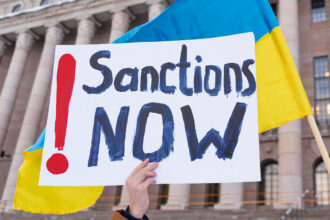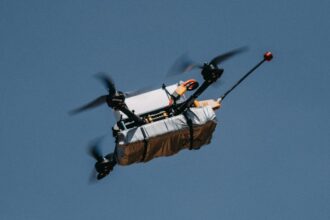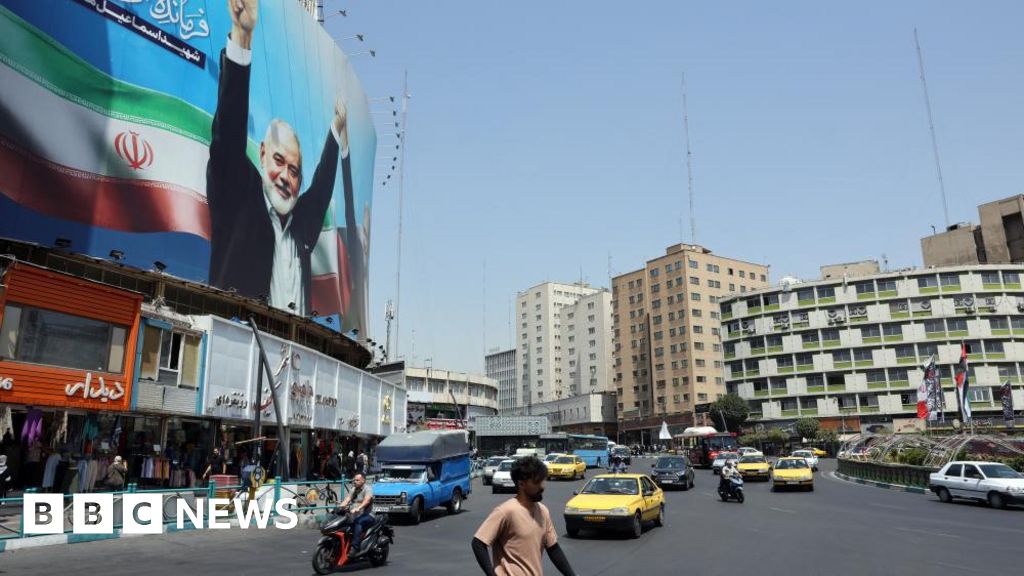Israel launched a series overnight air strikes against Iran, hitting “military targets”.
For weeks, an attack was expected in retaliation to the Iranian missile attack against Israel.
Why did Israel attack Iran?
Israel had promised to strike back after Iran launched a ballistic-missile attack on Israel on the 1st October. Iran launched more than 180 missiles in that attack. Israel’s air defences intercepted the majority of them, as did US-led allies. Some of the missiles did hit air bases or other sites. A falling missile casing killed one Palestinian.
Israel said that it would retaliate but did not specify when or how. Since then, there have been constant speculations about the timing and form of an Israeli strike.
The attack took place in the early morning hours of Saturday. It appears to have targeted missile manufacturing and launch sites, as well as what Israel called “other air capabilities”, but without specifying.
What was the response of Israel to Iran’s previous attack on Israel?
Iran claimed that it attacked Israel on the 1st of October as a retaliation to the killings of leaders of Hezbollah, Hamas and other Iranian-backed armed forces fighting Israel.
Israel bombed a building in Beirut, the capital of Lebanon, on 27th September, killing Hassan Nasrallah, the leader of Hezbollah, and Brig Gen Abbas Nilforoushan. Hamas’ political chief Ismail Haniyeh died in an explosion at the compound where he stayed during a trip to Tehran in July. Iran blamed Israel, but Israel has not confirmed or denied any involvement.
Iran’s attack on Israel was its second direct attack. Five months earlier, Iran had launched a wave of 300 drones and rockets at Israel. Israel said that almost all of the missiles and drones were intercepted. This attack was a response to an Israeli airstrike on a complex of Iranian consulates in Damascus on 1 April that killed 13 people including seven members from Iran’s overseas Quds force. Two of the dead were a senior Quds force commander and his deputy. Iran claimed that the attack was an invasion of its sovereignty.
The Quds Force is a part of Iran’s strongest armed force, Islamic Revolutionary Guard Corps.
Hezbollah receives weapons and equipment from the IRGC, including high-precision missiles.
Israel responded to Iran’s missile attack and drone attack by attacking targets in central Isfahan, Iran, nearly three weeks after the initial incident. US officials confirmed that Israel had attacked, but Israel made no comment. Israeli drones have reportedly hit radar for Iran’s Russian-made S-300 missile system. Israel believes that this would pose a dangerous threat to its fighter planes flying in the nearby airspace.
The attack on radar was considered a limited one and intended to signal Israel’s capability to strike Iranian military equipment.
Why are Israel and Iran adversaries?
Iran and Israel were engaged in a shadow war for years before the direct attack by Iran on Israel on April 1. They attacked each other’s assets, but never admitted responsibility.
These attacks have increased significantly during the Gaza war, which was sparked by Hamas’s attack on Israeli communities in the area last October.
The two countries were once allies, but the Islamic revolution of 1979 in Iran brought in a new regime that uses opposing Israel to promote its ideology.
Iran does not recognize Israel’s right of existence and seeks to eradicate it. Ayatollah Khamenei has described Israel as a “cancerous tumor” that will “undoubtedly be uprooted, destroyed”.
Israel believes Iran is an existential threat, as evidenced by its rhetoric, its building up of proxy forces, including the Lebanese militant Shia group Hezbollah, who are sworn to destroy Israel, and its funding of Palestinian groups, including Hamas.
It also accuses Iran that it is secretly developing nuclear weapons. Iran denies this, but they are trying to build one.
Do Iran and Israel possess nuclear weapons? What are the military capabilities of Israel and Iran?
Iran is geographically much larger than Israel and has a population that is almost 10 times bigger – nearly 90 million people – but it does not translate to greater military power.
Iran has made significant investments in drones and missiles. It has an arsenal of its very own and also supplies significant amounts to Hezbollah and the Houthis, both in Yemen.
It has upgraded its fighter jets and air defence systems. Russia is believed by many to be working with Iran to upgrade these systems in exchange for the military assistance Tehran has provided Moscow in its war against Ukraine. It has provided Iran Su-35 fighter jets and the advanced S-300 missile system.
Israel has one of most advanced air forces on the planet. According to the International Institute for Strategic Studies’ (IISS) report on military balance, Israel has at minimum 14 squadrons of jets, including F-15s F-16s, and the latest F-35 Stealth Jet.
Israel has also conducted strikes deep within hostile territory. The shortest distance from Iran to Israel is approximately 1,000km (620miles). Tel Aviv and Tehran are separated by about 1,600km, which is more than Israel’s fleet can travel without refueling.
Israel maintains a policy of ambiguity, despite the assumption that it has nuclear weapons. Iran does not possess nuclear weapons, but Western countries suspect that it is secretly working to develop them. Iran denies that it is even trying to acquire nuclear weapons.
Iran, like Israel, has a civil nuclear programme. However, it has been suspected for decades that it is secretly running a programme to manufacture enriched uranium for nuclear bombs and missiles to deliver these bombs.
In May, the director of the global nuclear watchdog stated that Iran was only “weeks” away from having the material to build a nuclear weapon. This does not mean Iran has a bomb within weeks. It would still be necessary to enrich that material to a military grade and have warheads. This is something Iran does not possess.
Israel is not a party to the Nuclear Non-Proliferation Treaty, but Iran is. The NPT is a treaty that aims to stop nuclear weapons from spreading. It requires its members to open up their nuclear facilities for inspection in order to verify that they are used only for peaceful purposes.
The 2015 UN-backed agreement with Iran, in which Iran agreed to limit its nuclear activities in exchange for a lifting in economic sanctions, largely collapsed when then-President Trump pulled out the US in 2018. The deal, which was backed by the UN and Iran in 2015, under which it agreed to measures limiting its nuclear activities in exchange for a lifting of economic sanctions, largely collapsed after then-President Trump pulled out the US in 2018.
Who are Iran’s Allies?
Iran has created a network of allies in the Middle East, which it claims is part of a “axis for resistance” that challenges US and Israeli interests. It supports them in varying degrees.
Syria is Iran’s biggest ally. Iran and Russia helped the Syrian government led by Bashar al-Assad to survive the civil war that lasted a decade.
Iran’s relationship is also growing in importance. In December, the Russian Foreign Ministry said that the countries would accelerate work on a major new interstate accord.
Iran has provided Russia with Shahed drones. In February, Reuters cited sources claiming that Iran also provided ballistic rockets. Iran denied the report. Iran denies the report.
Hezbollah is the most powerful of the armed groups Iran supports in Lebanon. Since the war between Israel and Hamas broke out, Hezbollah has traded cross-border fire almost daily with Israel. Tens of thousands civilians have been forced from their homes on both sides of border.
Iran supports several Shia militias in Iraq that have fired rockets at US bases in Iraq and Syria. The US retaliated when three of its soldiers died at a military outpost located in Jordan.
Iran supports the Houthi movement in Yemen, which controls most of the country’s population. The Houthis have launched missiles and drones against Israel, and also attacked commercial shipping near Yemeni shores. At least one vessel was sunk. In response, the US and UK have hit Houthi targets.
Iran also provides weapons, training and support to Palestinian armed groups such as Hamas which attacked Israel in October 2007. Iran denies playing any role in the 7th October attack.
Tom Spender, defence correspondent, and Jonathan Beale (additional reporting)
Read More @ www.bbc.com




